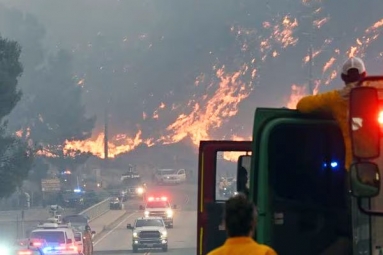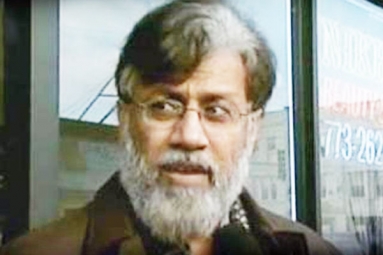
(Image source from: Downtoearth.org.in)
Washington University, along with the Delhi Pollution Control Committee (DPCC) will now conduct a study on air pollution in India's national Capital for the period of 18 months.
The chief target will be real-time air quality monitoring and identification of emission sources all 365 days a year and there will be special emphasis on Particulate Matter (PM) 2.5.
PM 2.5 is believed to be the most unsafe pollutant in the city that transcends to the lower respiratory/lung system and gets absorbed in the bloodstream leading to heart attacks and cancer. It is a byproduct of emissions from factories, vehicles and construction activities.
A lesser studied PM 1 (Particulate Matter less than one micron in diameter) will also be closely analyzed during the project.
A Memorandum of Understanding (MoU) to this effect has been signed between the Aam Aadmi Party-led Delhi Government & the American university.
A senior official said, "The work will be undertaken by personnel of the Aerosol and Air Quality Research Laboratory (AAQRL) at Washington University. The lab has the expertise to identify air quality problems and suggest solutions."
"There will be real-time monitoring and sampling of particulate matter - PM 1, 2.5 and 10. Two speciation monitors will be used in the project to obtain a composition of PM2.5. Analysis of elemental, organic carbon and 72 inorganic elements will also be undertaken," he said.
Wireless sensors will be deployed together with a developed algorithm to help monitor real-time air quality and the source at select locations in the city. This data will help policy development to regulate and improve the air quality.
In the meantime, the state of art instrument demonstration will lead to a path of capacity building development.
Earlier in 2016, a team led by Indian Institute of Technology-Kanpur Professor Mukesh Sharma had done a similar study and submitted a report titled 'Comprehensive Study on Air Pollution and Green House Gases (GHGs) in Delhi.' They had likewise monitored air quality in Delhi spread over all the seasons.
-Sowmya Sangam












